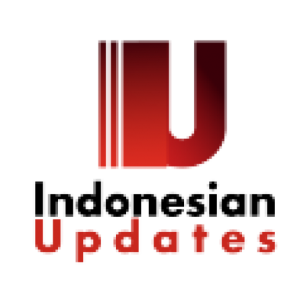Men’s dominance in the public and political domain remains strong, though recently, the increasing participation of Papuan women in political and public institutions is noteworthy and commendable.
Papuan women are increasingly aware that they have the same potential as men, including in terms of leadership.
Leadership does not discriminate gender, so as individuals, women can also act as leaders.
There are several people, who connect an individual’s capability in leading with biological aspects attached to women, despite it not being all relevant nor being based on fact.
Every individual, be it man or women, has the same rights and opportunity to act as a leader.
To this end, it is time for Papuan women to fill the representation quota within the parliament by at least 30 percent.
According to speaker of the Biak Legislative Council (DPRD) Milka Rumaropen, the involvement of Papuan women in political institutions and the government continues to increase from time to time.
To provide broader participation to Papuan women, political parties are urged to recruit more than 30 percent of the provided quota.
One of the indicators of the increasing trend in women’s representation can be seen during the result of the 2019 General Election.
As many political parties promote Papuan women to become candidates for the legislative branch, several women were chosen to become council members during the 2019 General Election.
For instance, in the Biak DPRD, the 2019 General Election’s result placed four Papuan women as council members, out of which Milka Rumaropen and Deputy Speaker Aneta Kbarek were chosen to become DPRD speakers.
In line with the issuance of Law No. 2 of 2021 on Papua Special Autonomy, the electability for Papuan women becomes more open.
Potential
Cendrawasih University’s academician Yohana Yembise stated that Papuan women should develop and not be constrained by intellectual darkness.
In the past, Papuan women were only allowed to clean houses, cook, sew, and take care of children at home. However, currently, they already enjoy the same education, health, and political rights as men.
Women’s duties and responsibilities are not just to complement a household but also to determine the course of their nation and region’s development.
To fight for their kind, women’s representation in politics should be expanded by involving them in political organizations and allowing them to become a legislative member.
Women, who delve into politics, are still hampered by patriarchal background, culture, as well as gender difference that stems from the perception that women have weaknesses and disadvantages.
To this end, Papuan women should be given room and an opportunity to express their potential to actively participate in developing a prosperous, fair Papua that values tolerance.
Head of the Biak Family Prosperity Empowerment (PKK) Mobilizer Team Ruth Naomi Rumkabu stressed that the involvement of Papuan women becomes an absolute condition in the effort to realize egalitarian and fair development.
A country can never be prosperous if women are left behind, marginalized, and become spectators to regional development.
Thus, she urged all women in Numfor to collectively help the government’s program in realizing gender equality.
Challenges
Papuan women still encounter several problems to align themselves with men in various fields.
Women in Papua are still behind in terms of the education, health, and economic fields as well as involvement in politics.
The other factor in the lack of women’s representation in the political institution is the strong patriarchal culture that deems women to be weak and incapable.
Moreover, the leadership factor is closely related to the selection process in political parties. Selection for women legislative candidates is usually conducted by a small circle of party leadership, almost always dominated by men.
Another problem concerns the fact that Papuan women still lack confidence in their capability and competence.
Mass media plays an important role in developing public opinion on the importance of women representation in the parliament and government.
Meanwhile, the other issue that Papuan women face concerns limitation in financial resources.
When it comes to delving into politics, women cannot just rely on intellectual capability but they should also be supported by other capacities.
In practice, democracy in Papua does not allow discrimination or classification within society based on sex.
All Papuan citizens should be treated the same and fairly in the political, economic, and social sphere.
Article 55, point 2 of Law No. 10 of 2008 implements the zipper system that dictates at least one woman should be placed in any position.
The implementation of Law No. 2 of 2021 also provides special rights to Papuan women to be able to participate in the cultural institution, Papuan People’s Council.
The existence of such special policies ensures that Papuan women receive access to the public sector, including in the political institution and the government.
Related news: Port Numbay batik carries message of peace from Papuan mothers
Related news: Sports Minister visits Papuan women’s market to see impacts of PON
